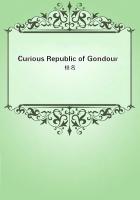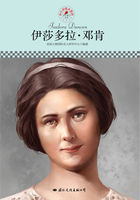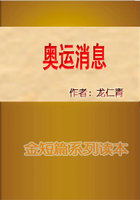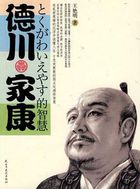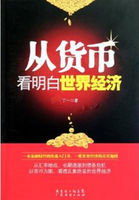And altho' by the Canon or Civil Law, if A. have a Son born of B. before Marriage, and after A. marries B. this Son shall be legitimate and heritable; yet according to the Laws of England then, and ever since used, he was not heritable, Glanvil. lib. 7. cap. 15.
Sixthly, In case the Purchaser died without Issue, the Land descended to the Brothers; and for want of Brothers, to the Sisters; and for want of them, to the Children of the Brothers or Sisters; and for want of them, to the Uncles; and so onward according to the Rules of Descents at this Day; and the Father or Mother were not to inherit to the Son, but the Brothers or Uncles, and their Children. Ibid. cap. 1. & 4.
And it seems, That in all Things else the Rules of Descents in reference to the Colateral Line were much the same as now; as namely, That if Lands descended of the Part of the Father, it should not resort to the Part of the Mother, or e converso; but in the Case of Purchasers, for want of Heirs of the Part of the Father, it resorted to the Line of the Mother, and the nearer and more worthy of Blood were preferred: So that if there were any of the Part of the Father, tho' never so far distant, it hindred the Descent to the Line of the Mother, though much nearer.
But in those Times it seems there were two Impediments of Descents or hereditary Successions which do not now obtain, viz.
First, Leprosy, if so adjudged by Sentence of the Church:
This indeed I find not in Glanville; but I find it pleaded and allowed in the Time of King John, and thereupon the Land was adjudged from the Leprous Brother to the Sister. Pasch. 4Johannis.
Secondly, There was another Curiosity in Law, and it was wonderful to see how much and how long it prevailed; for we find it in Use in Glanville, who wrote Temp. Hen. 2. in Bracton Temp.
Hen. 3. in Fleta Temp. Edw. I and in the broken Year of 13 E. I.
Fitzh. Avowry 235. Nemo potest esse Tenens & Dominus, & Homagium repellit Perquisitum: And therefore if there had been three Brothers, and the eldest Brother had enfeoffed the second, reserving Homage, and had received Homage, and then the second had died without Issue, the Land should have descended to the youngest Brother and not to the eldest Brother, Qiuia Homagium repellit perquisitum, as 'tis here said, for he could not pay Homage to himself. Vide for this, Bracton, Lib. 2. cap. 30.
Glanvil. Lib. 7. cap. I. Fleta, Lib. 6. cap. I.
But at this Day the Law is altered, and so it has been for ought I can find ever since 13 E. I. Indeed, it is antiquated rather than altered, and the Fancy upon which it was grounded has appear'd trivial; for if the eldest Son enfeoff the second, reserving Homage, and that Homage paid, and then the second Son dies without Issue, it will descend to the Eldest as Heir, and the Seigniory is extinct. It might indeed have had some Color of Reason to have examined, whether he might not have waved the Descent, in case his Services had been more beneficial than the Land: But there could be little Reason from thence to exclude him from the Succession. I shall mention no more of this Impediment, nor of that of Leprosy, for that they both are vanished and antiquated long since; and, as the Law now is, neither of these are any Impediment of Descents.
And now passing over the Time of King John and Richard Ibecause I find nothing of Moment therein on this Head, unless the Usurpation of King John upon his eldest Brother's Son, which he would fain have justified by introducing a Law of prefering the younger Son before the Nephew descended from the elder Brother:
But this Pretention could no way justify his Usurpation, as has been already shewn in the Time of Hen. 2.
Next, I come to the Time of Hen. 3 in whose Time the Tractate of Bracton was written, and thereby in Lib. 2. cap. 30 & 31 and Lib. 5. cap. It appears, That there is so little Variance as to Point of Descents between the Law as it was taken when Bracton wrote, and the Law as afterwards taken in Edw. I's Time, when Britton and Fleta wrote, that there is very little Difference between them, as may easily appear by comparing Bracton ubi supra. & Fleta, Lib. 5. cap. 9. Lib. 6. cap. 1, 2. that the latter seem to be only Transcripts or Abstracts of the former.
Wherefore I shall set down the Substance of what both say, and thereby it will appear, that the Rules of Descents in Hen. 3. and Edw. I's Time were very much one.
First, At this Time the Law seems to be unquestionably settled, that the eldest Son was of Common Right Heir, not only in Cases of Knight Service Lands, but also of Socage Lands, (unless there were a special Custom to the contrary, as in Kent and some other Places) and so that Point of the Common Law was fully settled.
Secondly, That all the Descendants in infinitum, from any Person that had been Heir, if living, were inheritable Jure representationis; as, the Descendants of the Son, of the Brother, of the Uncle, &c. And also, Thirdly, That the eldest Son dying in the Life-time of the Father, his Son or Issue was to have the Preference as Heir to the Father before the younger Brother, and so the Doubt in Glanville's Time was settled, Glanvil. Lib. 7, cap. 3. "Cum quis autem moriatur habens Filium postnatum, & ex primogenito Filio praemortuo Nepotem, Magna quidem Juris dubitatio solet isse uter illorum preferendus fit alii in illa Successioni, scilicet, utrum Filius aut Nepos?"Fourthly, The Father, or Grandfather, could not by Law inherit immediately to the Son.
Fifthly, Leprosy, Though it were an Exception to a Plaintiff, because he ought not to converse in the Courts of Law, as Bracton, Lib. 5. cap. 20 yet we no where find it to be an Impediment of a Descent.
So that upon the whole Matter, for any Thing I can observe in them, the Rules of Descents then stood settled in all Points as they are at this Day, except some few Matters (which yet soon after settled as they now stand) viz.
First, That Impediment or Hindrance of a Descent from him that did Homage to him that received it, seems to have heen yet in Use, at least till 13 E. I. and in Fleta's Time, for he puts the Case and admits it.


